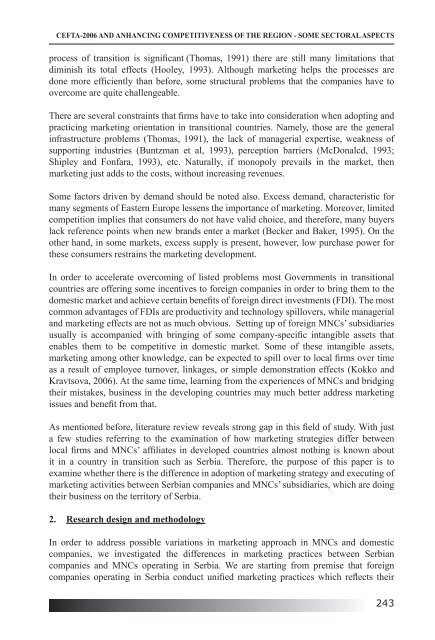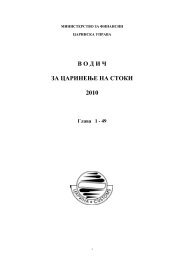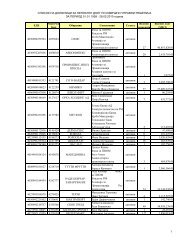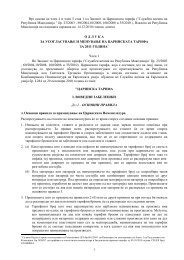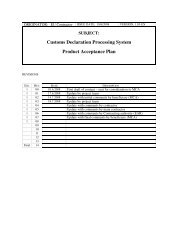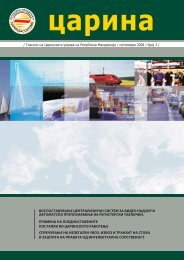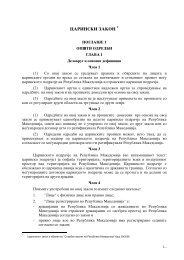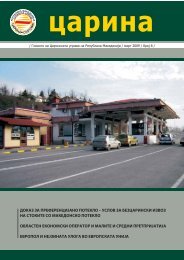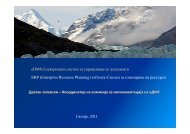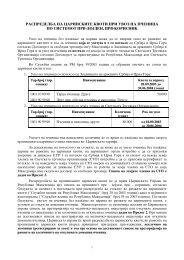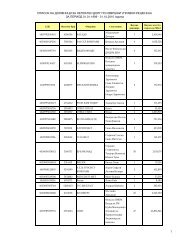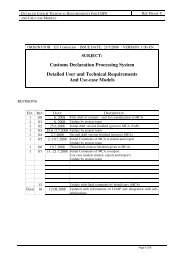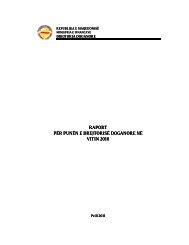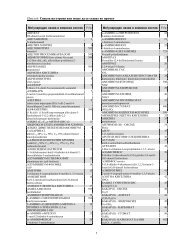REGIONAL COOPERATION AND ECONOMIC INTEGRATION
REGIONAL COOPERATION AND ECONOMIC INTEGRATION
REGIONAL COOPERATION AND ECONOMIC INTEGRATION
- No tags were found...
Create successful ePaper yourself
Turn your PDF publications into a flip-book with our unique Google optimized e-Paper software.
CEFTA-2006 <strong>AND</strong> ANHANCING COMPETITIVENESS OF THE REGION - SOME SECTORAL ASPECTS<br />
process of transition is significant (Thomas, 1991) there are still many limitations that<br />
diminish its total effects (Hooley, 1993). Although marketing helps the processes are<br />
done more efficiently than before, some structural problems that the companies have to<br />
overcome are quite challengeable.<br />
There are several constraints that firms have to take into consideration when adopting and<br />
practicing marketing orientation in transitional countries. Namely, those are the general<br />
infrastructure problems (Thomas, 1991), the lack of managerial expertise, weakness of<br />
supporting industries (Buntzman et al, 1993), perception barriers (McDonalcd, 1993;<br />
Shipley and Fonfara, 1993), etc. Naturally, if monopoly prevails in the market, then<br />
marketing just adds to the costs, without increasing revenues.<br />
Some factors driven by demand should be noted also. Excess demand, characteristic for<br />
many segments of Eastern Europe lessens the importance of marketing. Moreover, limited<br />
competition implies that consumers do not have valid choice, and therefore, many buyers<br />
lack reference points when new brands enter a market (Becker and Baker, 1995). On the<br />
other hand, in some markets, excess supply is present, however, low purchase power for<br />
these consumers restrains the marketing development.<br />
In order to accelerate overcoming of listed problems most Governments in transitional<br />
countries are offering some incentives to foreign companies in order to bring them to the<br />
domestic market and achieve certain benefits of foreign direct investments (FDI). The most<br />
common advantages of FDIs are productivity and technology spillovers, while managerial<br />
and marketing effects are not as much obvious. Setting up of foreign MNCs’ subsidiaries<br />
usually is accompanied with bringing of some company-specific intangible assets that<br />
enables them to be competitive in domestic market. Some of these intangible assets,<br />
marketing among other knowledge, can be expected to spill over to local firms over time<br />
as a result of employee turnover, linkages, or simple demonstration effects (Kokko and<br />
Kravtsova, 2006). At the same time, learning from the experiences of MNCs and bridging<br />
their mistakes, business in the developing countries may much better address marketing<br />
issues and benefit from that.<br />
As mentioned before, literature review reveals strong gap in this field of study. With just<br />
a few studies referring to the examination of how marketing strategies differ between<br />
local firms and MNCs’ affiliates in developed countries almost nothing is known about<br />
it in a country in transition such as Serbia. Therefore, the purpose of this paper is to<br />
examine whether there is the difference in adoption of marketing strategy and executing of<br />
marketing activities between Serbian companies and MNCs’ subsidiaries, which are doing<br />
their business on the territory of Serbia.<br />
2. Research design and methodology<br />
In order to address possible variations in marketing approach in MNCs and domestic<br />
companies, we investigated the differences in marketing practices between Serbian<br />
companies and MNCs operating in Serbia. We are starting from premise that foreign<br />
companies operating in Serbia conduct unified marketing practices which reflects their<br />
243


